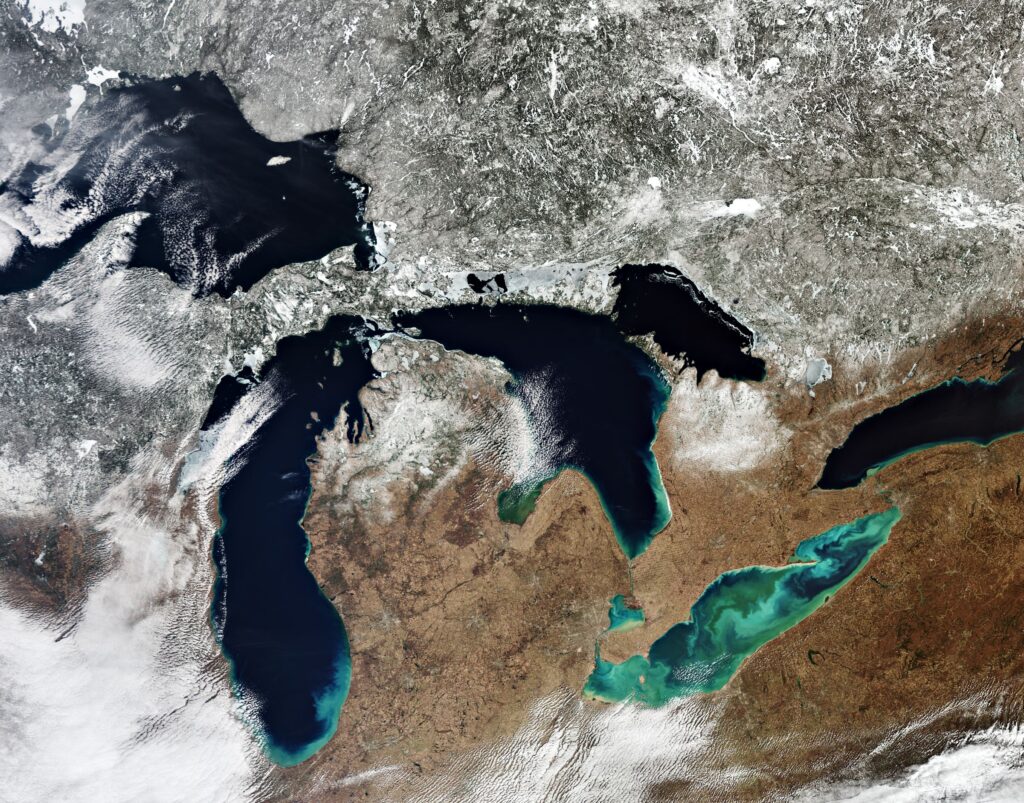The world’s largest lakes are experiencing severe lake heat waves six times as frequently as they were two decades ago, according to a new study.
According to the research, nearly all severe lake heat waves occurring over the past 20 years were due, in some part, to climate change and could become between three and 25 times more likely by the end of the century.
The study analyzed more than two decades of surface temperature data from the world’s largest lakes to find out how frequently lake heat waves occur and modeled how much anthropogenic climate change has contributed to their occurrence.
Researchers found severe lake heat waves are twice as likely to occur, on average, than they were during a pre-industrial climate. Lake heat waves can change water conditions, stress aquatic plants and animals and lead to algae blooms and other water quality issues.
The study was published in the AGU journal Geophysical Research Letters, which publishes short-format, high-impact studies with implications across the Earth and space sciences.
R Iestyn Woolway, lead author and climate scientist at Bangor University in Wales, said, “What really stood out was the magnitude of human contribution: Most of the severe lake heat waves we looked at had a significant anthropogenic imprint. Unlike humans, who can get into air conditioning or construct emergency shade, there’s no escape for aquatic organisms when they are exposed to these extreme temperatures.”
The researchers analyzed lake surface temperature data from the European Space Agency (ESA) from 78 lakes that were large enough to sample temperatures from multiple points, spanning from 1995 to 2019.
Woolway and his co-authors looked for lake heat waves of varying intensities, but limited their attribution analysis to “severe” or “extreme” heat waves. To determine heat wave severity, the researchers analyzed surface temperature anomalies, or how much warmer temperatures are compared to normal conditions. A severe heat wave sees lake surface temperatures that soar well above the top 10% of all observed temperatures.
The researchers paired historical temperature data with climate models from the Intersectoral Impact Model Intercomparison Project, a large community effort to simulate lake responses to climate change, to estimate how much human climate change has contributed to observed lake heat waves, and to predict how frequently lake heat waves will occur over the next century.
The researchers found that severe and extreme lake heat waves may be three times more likely at 1.5ºC of global warming above pre-industrial temperatures, which was the goal set under the Paris Agreement. Under a 3ºC global warming scenario, severe lake heat waves will be up to 25 times more likely, relative to the likelihood of these events in a pre-industrial climate. Anthropogenic contributions were also higher in tropical lakes, mirroring other studies that have found lower-latitude regions bearing the brunt of climate change impacts.
Because the study only looked at large lakes, which can be more resistant to changes, and severe heat waves, the study may actually be a conservative estimate of how frequently severe lake heat waves hit.
To view a copy of the original study, Severe lake heatwaves attributable to human-induced global warming, click here.



